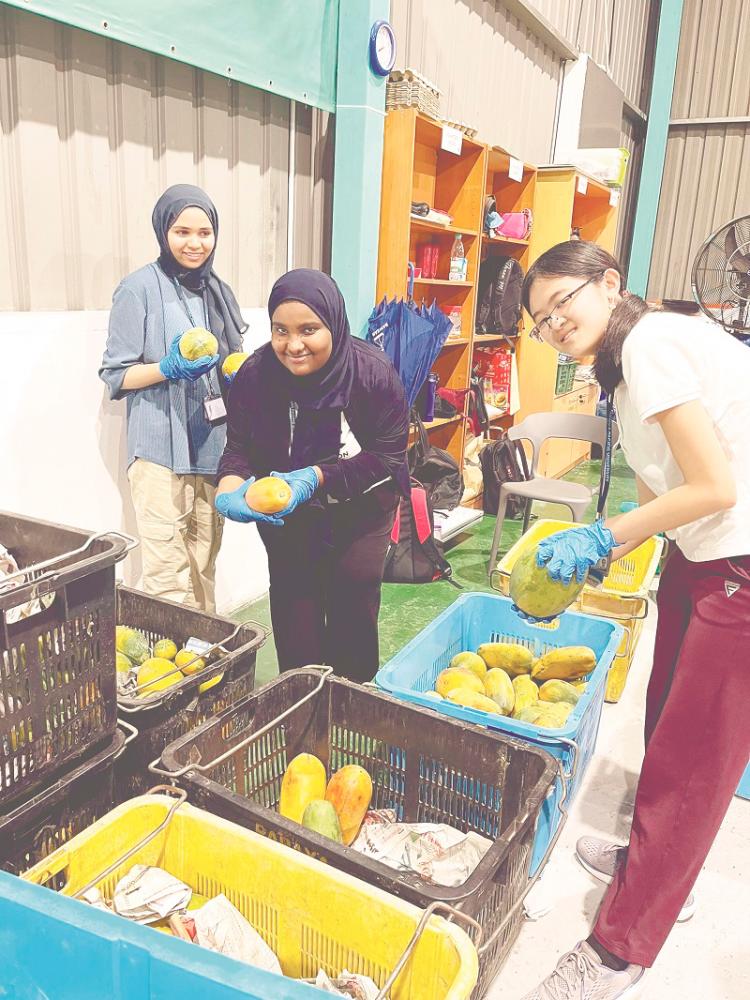Today education is not just about achieving the highest grades, but also educating students on the value of sustainable living.
Students at Sunway College and Asia Pacific University have taken the initiative to reduce wastage, in terms of fashion design and food waste, championing responsibility in the way fashion and food can eliminate waste.
At Sunway College students pursuing studies in fashion design technology are learning how to reduce waste through the “Zero-waste and One-seam dress project”, which uniquely designs dresses by maximising every inch of material.
This is in contrast to traditional garment production, which often leaves meters of leftover material, after the dress is designed, cut and sewn. The new technique known as ‘zero-waste draping’ uses the latest technology to shape the dress directly on the body, thus employing one continuous stream to construct the garment.
Head of programme at Sunway College for the Diploma in Fashion Design Technology, Vincent Leong Jia Hou said:
“The students use cutting edge 3D fashion software to reduce fabric waste up to 80%. The software allows students to create and visualise digital patterns on 3D avatars, thus minimising the need for cutting and the use of multiple zippers, panels and other fastenings,” he said.
Another vital component of the “Zero-waste and One-seam dress project” is its emphasis on local sourcing, thus reducing the impact of the carbon footprint, associated with transportation,” he said.
Beyond the environmental advantages, Leong feels ‘zero-waste draping’ sparks creativity among designers, as they learn to navigate new channels of fashion.
“Educational institutions are key in preparing the next generation of designers by equipping them with expertise in digital technologies and sustainable materials, while also nurturing their problem-solving skills to create innovative, eco-conscious designs,” added Leong.
“Turning excess into edible gold”, a project by Asia Pacific University students (APU) guided by APU lecturer Cynthia Paul, turned out to a success as it transformed rescued food, especially excess fruits and vegetables into consumable products such as sauces and jams.
According to Cynthia, over 200 students have participated in the project, learning the importance of sustainability and the impact of food waste on society.
“A team of 20 students took the project one step further by creating value added products such as jams, pickles and sauces. The university organised bazaars, showcasing not only products by the students but also preserved products by children from orphanages and single mothers,” she said. The students also developed a collaboration with the Lost Food Project, a non-governmental organisation (NGO) focused on zero food waste.
“The main reason for starting this project was the realisation that food waste was not just an environmental issue but also a missed economic opportunity for low income families, who could transform the food waste into economically viable products, and thus earn income from the sales,” added Cynthia, who feels these sort of initiatives are important to empower students on the United Nations Sustainable Development Goals (SDGs) and put them into practice.
She said the challenge faced by students was the inconsistent supply of produce and the short shelf life of vegetables and fruits, which meant they required immediate processing. Time managment was therfore important.










